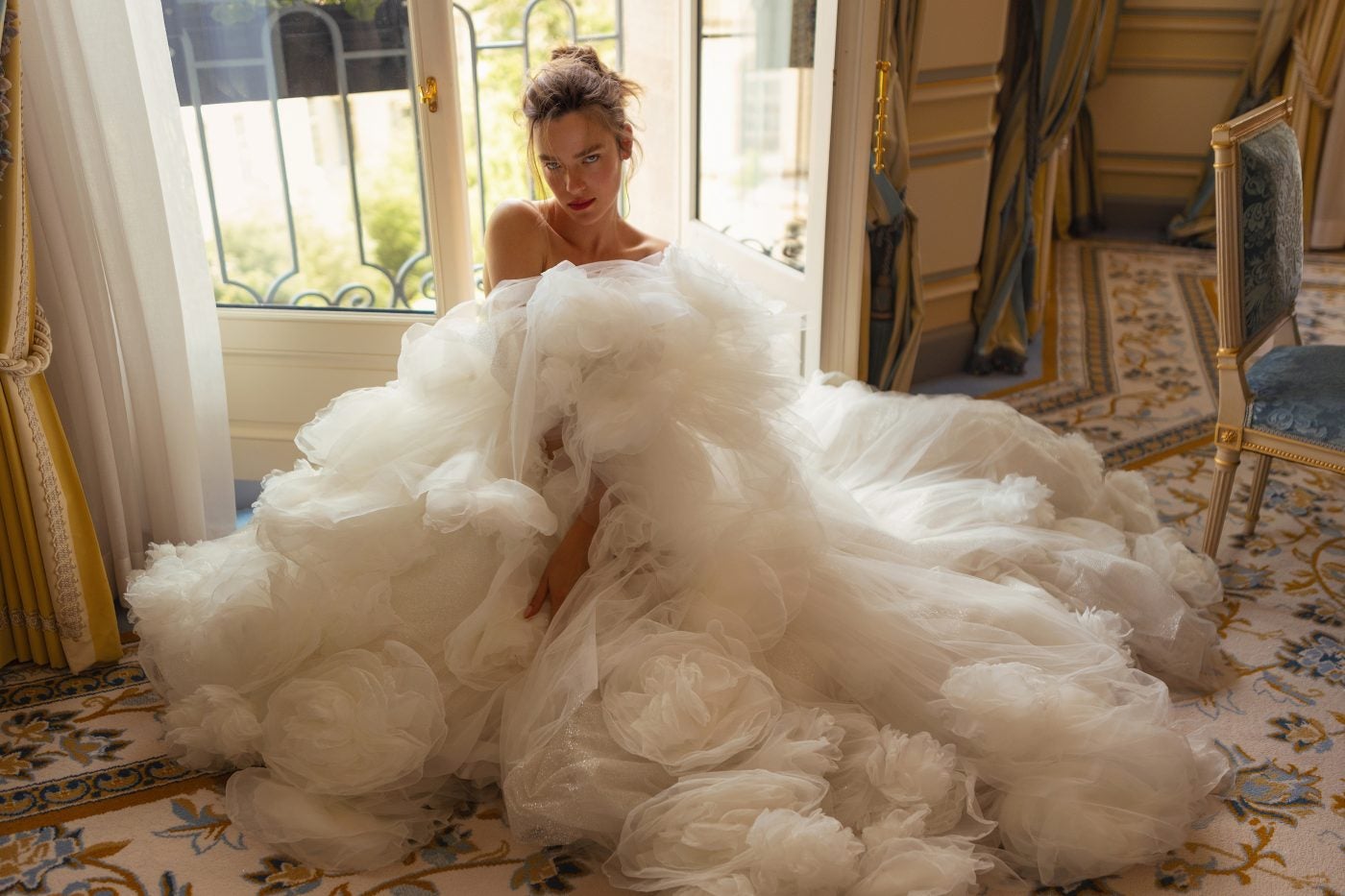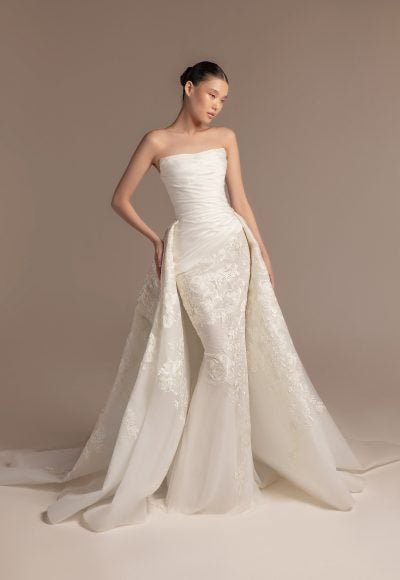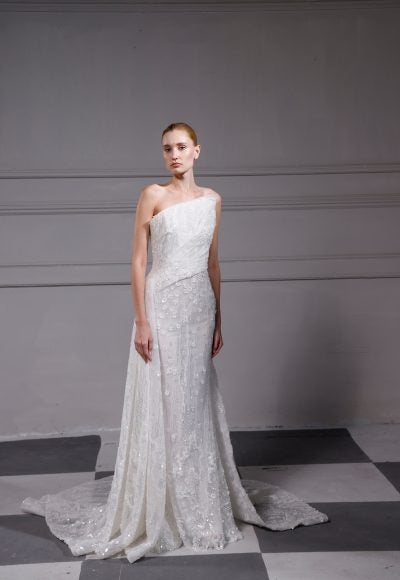
Benefits of Choosing a Dress with an Overskirt
Choosing a wedding dress with an overskirt offers versatility that allows for a two-in-one bridal look. The addition of an overskirt infuses a sense of drama, elegance, and tradition for the ceremony while the removal of the detachable piece provides ease of moment and comfort. The second look is not only more relaxed, but it also offers the opportunity to incorporate a tastefully sexy or playful element into the bridal look.
This piece also eliminates the need for the gown to be bustled after the ceremony. Convenient and adaptable, the convertible look is not only functional, but it cultivates a way for brides to express personality and style in multiple looks.


